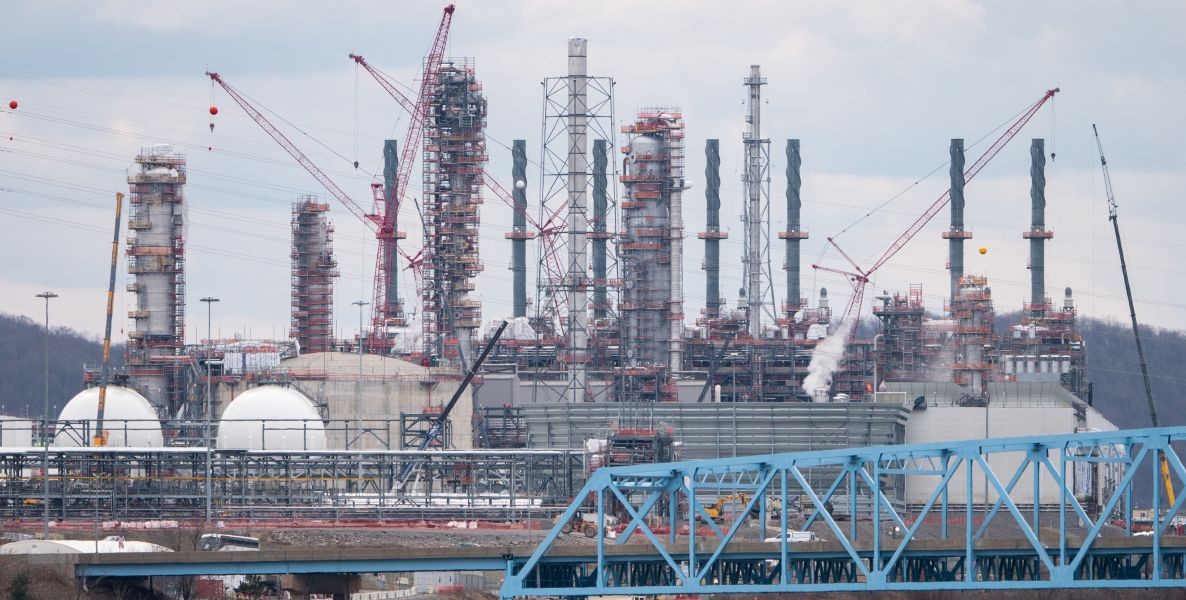Pennsylvania faces an unsettling prospect: California-style blackouts looming on the horizon.
This is a troubling shift for a state that proudly stands as a net energy exporter. Yet, despite this enviable position, Pennsylvanians find themselves burdened with residential electricity costs that exceed the national average by 13 percent.
Since 2018, the state’s residents have endured electric rate hikes outpacing those of neighboring states, resulting in a staggering 30 percent increase in energy costs. That’s driven monthly costs for electricity, heating, and gasoline to $669 per household — one of the nation’s highest.
For two decades, energy demand in PA held steady. That stability was upended in December 2022, when OpenAI unveiled ChatGPT, igniting an artificial intelligence boom that reverberated across the country.
The ripple effects have reached PA’s power grid, managed by PJM, the regional operator overseeing the Mid-Atlantic and parts of the Rust Belt. In late 2024, PJM warned that AI and data centers are projected to consume nearly one-sixth of the electricity generated in its territory. This is no small matter.
The computational might of AI relies on vast amounts of electricity, and PA — with its strategic location in the Northeast corridor, affordable land, and abundant power infrastructure — has emerged as an ideal hub for these energy-hungry facilities.
The numbers paint a sobering picture. Over the next decade, even under the most conservative estimates, the regional grid faces a shortfall of 80,000 megawatts of electricity. PA contributes roughly 25 percent of the power flowing into this grid.
A simple calculation reveals the scale of the challenge: to maintain its role as a supplier, the state must add at least 20 new 1,000-megawatt generation plants. Yet, as of now, not a single such facility is under construction, nor are there plans to break ground. As these facilities can take up to five years to build and the gap between demand and supply widens with each passing day, time is not on the side of policymakers.
The irony is stark: A state that exports power to its neighbors now risks leaving its own citizens in the dark. This should be an opportunity for PA to fully leverage its potential energy production advantage to serve as a magnet for any enterprise to locate here.
Considering PA is known as the “Saudi Arabia of Natural Gas,” how did we get here?
For one, many of the state’s energy policies have languished. These outdated laws struggle to accommodate the rapid evolution of technology and the economy it fuels.
Blocking the construction of data centers and other AI facilities in PA is shortsighted, as the regional electric grid is interconnected. The electricity to fuel them must come from somewhere or it will only draw more power away from PA.
Being “All of the Above” matters, whether it be nuclear, gas, renewables or other energy sources. For example, the politically “ruby red” state of Texas has more solar facilities than anywhere else in the country. It is also building 12 new natural gas projects to keep up with demand.
Solutions exist, though they require decisive action.
First, PA’s energy laws must be modernized to reflect the realities of the 21st century. A forward-looking energy policy will unlock billions in private investment for new plants, balancing emissions goals with grid reliability. Twenty-two states have natural gas power plants under construction or in development. Sitting on the world’s largest natural gas reserve, PA is shockingly not one of those states.
Second, large-scale energy projects — whether natural gas plants, nuclear facilities, or renewable installations — need fast-tracking. The current pace of development is no match for the urgency of the moment. Leading at the federal level, President Trump has authorized expediting large-scale energy projects. However, there are nearly 2,500 smaller shovel-ready energy projects in the regional grid queue languishing that are poised to invest billions of private dollars into rural electric infrastructure improvement.
Finally, the state should centralize its site permitting process for energy generation, cutting through the bureaucratic tangle that delays progress. Centralize permitting to slash years off timelines, signaling PA is open for business.
The irony is stark: A state that exports power to its neighbors now risks leaving its own citizens in the dark. This should be an opportunity for PA to fully leverage its potential energy production advantage to serve as a magnet for any enterprise to locate here.
The blackout threat is not inevitable.
The tools to prevent this crisis are within reach — policy reform, expedited projects and streamlined approvals.
Will we act before the lights go out?
This piece originally ran in RealClear PA. Athan Koutsiouroumbas is a managing director at Long Nyquist and Associates and a former congressional chief of staff. Follow him on X at @Athan_K.
![]() MORE ON CLIMATE AND ENERGY FROM THE CITIZEN
MORE ON CLIMATE AND ENERGY FROM THE CITIZEN



